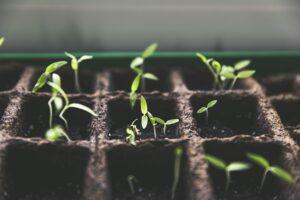The health of plants means the future of all of us
Plants provide one of the bases of food supply: without plant cultivation, there would be no food or fodder. If plants die, it affects the livelihood of farmers and producers, as well as the quality and price of food. The European Food Safety Authority (EFSA) and the European Commission (EC) launched a 22-country campaign called PlantHealth4Life to raise awareness of plant health and biodiversity. The domestic partner of the campaign is Nébih.

(Photo: Pixabay)
Southern Italy, 2013: an unknown bacterium was identified, which by then had spread to olive farms, severely damaging the Italian agricultural economy and turning the region’s typical landscape into a deplorable sight.The large-scale infection also affected the market price of olives available in other countries. The example clearly shows what it means to protect the health of plants, since 80 percent of the food we eat is of plant origin, and plants clean the air we breathe. Everywhere we go, we are surrounded by plants. Not only in the countryside, but also in the cities, since plants are defining elements of public spaces and parks, parts of the natural environment, they define our environment, the landscape that surrounds us. Plants provide one of the bases of the food supply: without plant cultivation, there would be no food or fodder.
If plants die, they affect the livelihood of farmers, producers and traders, the quality and price of food, as well as the condition of forests and parks
But climate change, trade and tourism can fundamentally endanger the health of plants: we can bring plant pests into the country from faraway places, against which we can no longer protect ourselves once they have entered the country. Either because we do not yet have effective protection technology against it, or because our native plants are not resistant enough. This risk of infection and the importance of prevention is being called attention to by the campaign of 22 European countries that is starting now. The #PlantHealth4Life campaign aims to raise awareness of plant health risks. “The health of plants not only affects the environment, the economy and the European food chain, but also our present and our future – by preserving the health of plants, we protect life. It is important to emphasize that more and more citizens across Europe feel this is a matter of their heart and want to do something for the cause, which is why they are joining the campaign, said Tobin Robinson, head of the EFSA PLANTS unit. “European citizens informed about plant health can help protect and conserve biodiversity,” said Claire Bury, DG Health and Food Safety’s Deputy Director-General for Food Sustainability.
Join the campaign!
If you’re interested in the details, visit the #PlantHealth4Life campaign website to learn how you can protect the health of our plants. This can be especially useful for you if: • you are a curious traveler who likes to explore the world and nature. • you are a hobby gardener who grows vegetables, flowers and trees in your home, garden or balcony, • you are a parent who cares about your children’s future and what they eat, and biodiversity is important to you
About the campaign
#PlantHealth4Life is a multi-year European campaign covering 22 countries, which was launched at the request of the European Commission. The basis of the campaign is provided by in-depth analysis. In addition to Belgium, Cyprus, the Czech Republic, and Denmark, the campaign also includes Estonia and Finland, among others.
Nébih
Related news
From ham to egg dye – comprehensive Nébih inspection continues until Easter
🎧 Hallgasd a cikket: Lejátszás Szünet Folytatás Leállítás Nyelv: Auto…
Read more >AM: from ham to egg dye, comprehensive Nébih inspection is underway until Easter
🎧 Hallgasd a cikket: Lejátszás Szünet Folytatás Leállítás Nyelv: Auto…
Read more >State compensation for the victims of Bászna Gabona Zrt. has been completed
🎧 Hallgasd a cikket: Lejátszás Szünet Folytatás Leállítás Nyelv: Auto…
Read more >Related news
40 secure jobs, sustainable solutions – new BURGER KING® in Csepel
🎧 Hallgasd a cikket: Lejátszás Szünet Folytatás Leállítás Nyelv: Auto…
Read more >From ham to egg dye – comprehensive Nébih inspection continues until Easter
🎧 Hallgasd a cikket: Lejátszás Szünet Folytatás Leállítás Nyelv: Auto…
Read more >






